Thursday, February 09, 2012
About Me
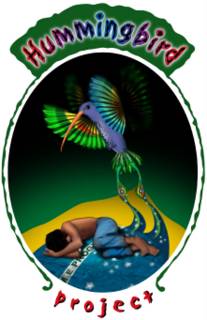
- Name: CARF Brazil
- Location: Diadema, São Paulo, Brazil
CARF Brazil, was established by Gregory J. Smith in São Paulo in 1993. Gregory had already established The Children At Risk Foundation – CARF Norway in 1992, to benefit the street children of Brazil by defending their rights and offering them a dignified solution so that they could live and grow within a family-oriented context and healthy social environment. The knowledge gained during the last decade guided Gregory to create a Street Migration Prevention Programme. Due to its success, CARF had to seek new solutions to cope with growing demands and in 2001 The Hummingbird Arts & Cultural Activity Centre became a reality, allowing CARF to expand its capacity from 80 children and young people to more than 2000 today. An important development in 2007 was the establishing of a new Brazilian NGO, The Hummingbird Cultural Network (RCBF - Rede Cultural Beija-Flor), to cater for a network of community prevention centres implemented during the next few years and led by youth entrepreneurs trained at Hummingbird. By the end of 2012 we will have four community prevention centres up and running...

Previous Posts
- Surviving...
- Embrace the stars...
- Brazilian innocence...
- Little Hannah
- Newborn
- Buhay Basura
- Somewhere else
- Pippi Langstrumpf auf nepalesisch
- Todo es menos
- AFRICA - Surma Children
Archives
- August 2005
- September 2005
- October 2005
- November 2005
- December 2005
- January 2006
- February 2006
- March 2006
- August 2006
- November 2006
- February 2007
- March 2007
- September 2007
- December 2007
- February 2012
CARF Links
- Gallery Beija-Flor
- CARF Web Net
- CARF Blog
- Capoeira Beija-Flor
- Urban Outcries Web
- Urban Outcries Blog
- CARF Norway
- Ashoka Profile - CARF
- Special Appeal HAITI
- Children At Risk – Charity Participation Survey
Worthy Links
- “Migrations” by Sebastião Salgado
- “Terra” by Sebastião Salgado
- Amazonas Images by Sebastião Salgado
- “Genesis” by Sebastião Salgado
- “Earth Pilgrim” by Sacha Biyan
- “Mental Picture” by Tim Hetherington
- Ami Vitale – Photographer Par Excellence
- Tatiana Cardeal (:)<[o]=
- The Invisibles
- The Electronic Intifada
- Brazilian Photos by Pedro Martinelli
- Ashoka Social Entrepreneurs
- Ashoka Brasil
- Millennium Development Goals
- State of the World’s Children - 2004
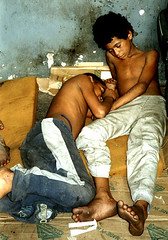
by members of the
Flickr Community
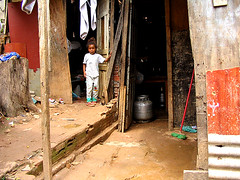
by members of the
Flickr Community

Flickr Children Galleries
- United Children
- Children's Portraits
- Little People
- Little Ones in B&W
- Mother and Child
- World Kiddies
- Mothers and Sons
- CoOol Kids
- Parent and Child
Other Flickr Galleries
- Forsaken by Society
- Forsaken People
- Social Documentary
- Global Poverty
- Developing World
- PEACE
- Street Portraiture
Children's Portraits Main Gallery
Human Rights Resources
- Human Rights Watch
- CIVICUS
- Civil Society Watch
- Amnesty International
- Universal Declaration of Human Rights
- Convention on the Rights of the Child
- International Covenant on Economic, Social and Cultural Rights
- International Covenant on Civil and Political Rights
- European Convention on Human Rights
- African Charter on Human and People’s Rights
- American Convention on Human Rights
- Convention on the Elimination of All Forms of Discrimination Against Women

Download Handbook (pdf)
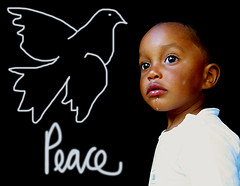
SPECIAL APPEAL HAITI
Yéle Haiti Foundation
"Yéle is not just a foundation. Yéle is a movement, where we feel the hands of the kids, touch the hearts of the kids." - Wyclef Jean
Handy Photo Books
Great Photo Books
Child Photography
General Photo Books
CARF is working to increase local, national and global awareness of Street Children and other Children At Risk. Please help us to achieve our goals by making your contribution at the bottom of this page »»»»

We would very much appreciate your feedback in our simple, ten question Children At Risk – Charity Participation Survey.
Children At Risk Foundation - CARF
Estr. Pedreira Alvarenga 2343/9
Eldorado, 09971-340 Diadema - SP
São Paulo - BRASIL
Tel.(55)(11)4049 4440
(55)(11)4047 2231
|
|
|
|
|
|
|
|
|
|

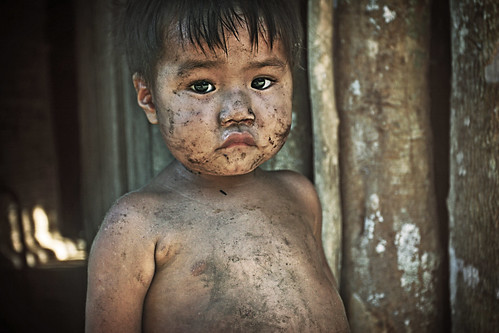


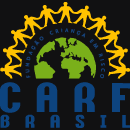

A major problem today for the indigenous people's healthy survival and integrity is how to address the imbalance created by the non-indian society, caused when one controls the indian's way of life by strictly demarcating very limited and inferior areas for them to live and practice their traditional way of life (whilst the non-indians continues to destroy more and more of their natural territory to sustain their own insatiable needs), creating dependency on irresponsible government assistance programs and forcing upon them the non-indian's economic system to be able to survive in this new unbalanced world (with not even the basic know-how or education to do so), also deciding how they are to live (exist) and showing very little respect for their peculiarities.
In such a scenario, the indigenous people's lives become merely a tough plight for survival, barely hanging on to their very personal spiritual customs, but far from living the "ideal" life they have lived for centuries, with traditions passed on from generation to generation.
Today the indigenous people of Brazil are imprisoned in the non-indian's world without the means to defend themselves. No matter what national or international legislation exists to protect their rights, the genocide continues......
See my Facebook for more Social Critisism
Sobrevivendo...
- Sobrevivendo o impossível do desenvolvimento humano: 500 anos de abuso, mas quanto tempo mais irá o povo Guarani suportar as mudanças e exigências do mundo dominante?
Um grande problema hoje para a sobrevivência saudável dos povos indígenas e a integridade deles, é como lidar com o desequilíbrio criado pela sociedade não-indígena, causada quando essa sociedade controla a maneira de vida dos índios pela estrita demarcação de áreas muito limitadas e inferiores para que possam viver e praticar a seu modo de vida tradicional (enquanto os não-índios continuam a destruir cada vez mais o seu território natural para sustentar suas próprias necessidades insaciáveis), criando dependência de programas irresponsáveis de assistência do governo e impondo-lhes o não-índio sistema econômico para sejam capazes de sobreviver neste novo mundo desequilibrado (mesmo sem o básico know-how ou educação para fazê-lo), também decidindo como eles devem viver (existir) e mostrando pouco respeito pelas suas peculiaridades.
Em tal cenário, as vidas dos povos indígenas tornam-se meramente uma situação difícil para a sobrevivência, apenas segurando em suas costumes muito pessoais e espirituais, mas longe de viver a vida "ideal" que eles viveram por séculos, com as tradições passadas de geração em geração.
Hoje os povos indígenas do Brasil são presos no mundo do não-índio sem os meios para se defender. Não importa que a legislação nacional ou internacional existe para proteger seus direitos, o genocídio continua....